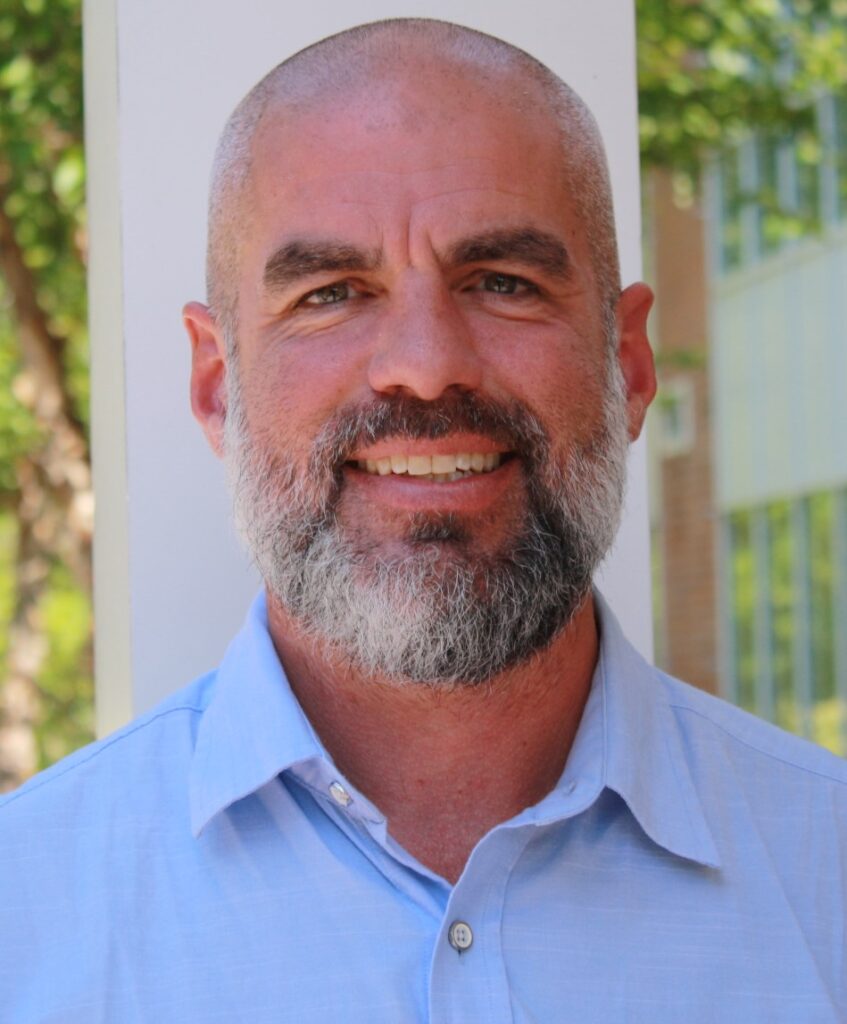
Chris Gooding, LCSW-C, Social Worker, Hospice of the Chesapeake
There are many moving stories about how a hospice social worker helped a patient get married, have a bedside ceremony for their child’s high school graduation or take that one last trip to the ocean. These are impactful, memory-making moments that can go a long way to honor the patient’s final wishes while helping a family heal after their gone.
But I’m not going to share those kinds of moments.
I’m going to share moments like helping the patient make a phone call to an estranged family member. Giving the patient permission to not make the phone call to the estranged family member. Counseling a daughter whose mother no longer knows who she is due to dementia. These are moments that matter, everyday moments, that are nurtured by a hospice social worker.
For the social worker, the beginning of hospice care is filled with many one and done tasks. There is paperwork – Family Medical Leave Act forms, advance directives, caregiving planning, etc. There is helping prepare the home for the caregivers – arranging for hospital beds, walkers, and other durable medical equipment.
Tandem with those tasks is the need to immediately provide counseling. Giving the family a safe space to share their feelings about the impending loss of their loved one. Helping the patient adapt to what may be new limitations. Providing insight to the family about how the next few months, weeks, days, maybe even hours might look like.
Families can be messy. For many, making moments that matter means reconciling grudges or misunderstandings. Here, a social worker might start some conversations with the patient and family to explore the history of the rift and what the difficulties are. Then there can be a family meeting where the social worker is a third-party intermediary to help facilitate some conversations about forgiving or asking forgiveness.
The moment that matters here is to give all involved some healing before the patient dies and they’ve lost the opportunity. For the patient, this unfinished business could cause extra stress at the end of their life, leaving family members left to cope with these unresolved issues.
Memory making moments like going to an Orioles game or making a big birthday party happen for families can be a challenge for social workers that leads to an important moment for everyone. But I’m also helping to make moments that matter each time a patient asks to help them call a long lost relative to say, “I’m sorry.”
Sometimes there’s situations where the patient is not able or willing to reconcile. Then social workers become a support for the family to help them find in some other way the peace they hoped would happen before their person died.
Memory making moments like going to an Orioles game or making a big birthday party happen for families can be a challenge for social workers that leads to an important moment for everyone. But I’m also helping to make moments that matter each time that I am with a patient who shares with me that they had a great time watching Jeopardy with their family or asks to help them call a long lost relative to say, “I’m sorry.”
Some moments that matter are even simpler. A family asked that I visit their father every week, which I did for three months while he was in our care. On a few visits I had to complete about five minutes of paperwork. The rest of the time was just being there. To listen. To talk. Just being in the moment. Each week I knew I made a difference. Each week I knew I had made moments that mattered.

Much of the work of a hospice social worker is the time we spend just being there for our patients and their families. To listen. To talk. Just being in the moment.


